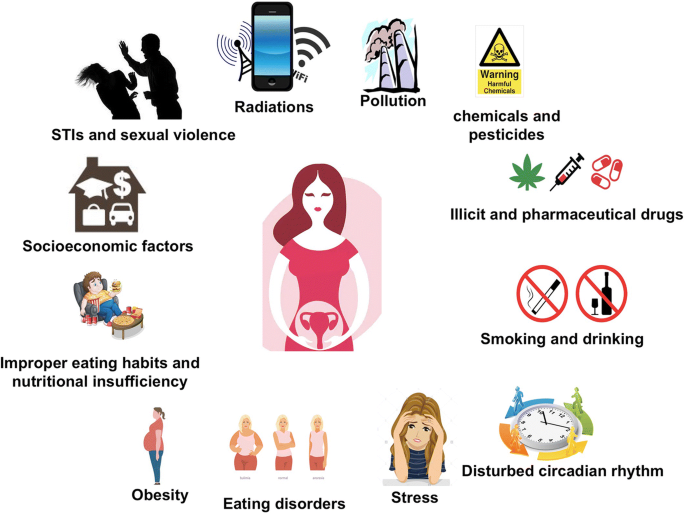
When it comes to fertility, many people don’t realize just how impactful lifestyle choices can be. Factors like diet, exercise, stress levels, and habits such as smoking and alcohol consumption play a major role in reproductive health. Making small but meaningful changes in daily habits can significantly improve the chances of conception for both men and women. In this blog, we’ll explore how specific lifestyle factors affect fertility and provide actionable do’s and don’ts to help boost fertility health naturally.
The Impact of Lifestyle Choices on Fertility
Lifestyle choices influence hormone levels, reproductive organs, and overall health, all of which affect the ability to conceive. Here are some common lifestyle factors that can have a direct impact on fertility:
- Diet: Proper nutrition provides essential vitamins and minerals that aid in hormone balance and reproductive health.
- Exercise: Regular physical activity can help regulate hormones, but too much exercise can negatively impact fertility.
- Stress: High stress levels affect hormonal balance and can interfere with ovulation and sperm production.
- Smoking and Alcohol: Both smoking and excessive alcohol intake have been linked to lower fertility rates in both men and women.
Understanding how each factor affects fertility can help you make informed choices to improve reproductive health.
Fertility Do’s: Positive Lifestyle Changes
These lifestyle practices can support reproductive health and boost fertility naturally:
1. Eat a Balanced Diet
- Why: A diet rich in nutrients, especially antioxidants, vitamins (like C, D, and B-complex), and minerals (like zinc and selenium), promotes hormone balance and sperm and egg health.
- How: Focus on whole foods such as fresh fruits, vegetables, whole grains, lean proteins, and healthy fats. Foods rich in folic acid, iron, and omega-3 fatty acids, like leafy greens, nuts, seeds, and fish, are especially beneficial.
2. Maintain a Healthy Weight
- Why: Being underweight or overweight can disrupt hormonal balance, affecting ovulation in women and sperm quality in men.
- How: Aim for a BMI within the healthy range. A balanced diet combined with moderate exercise can help achieve and maintain this.
3. Exercise Moderately
- Why: Physical activity helps regulate hormones, improves mood, and supports overall health.
- How: Engage in moderate activities like walking, yoga, or swimming. About 30 minutes a day, five days a week, is a good goal for most people.
4. Manage Stress Levels
- Why: Chronic stress leads to the release of stress hormones (like cortisol), which can interfere with reproductive hormones.
- How: Practice relaxation techniques such as meditation, deep breathing, or hobbies that bring joy. Mindfulness practices and seeking support from friends or a counselor can also help reduce stress.
5. Get Enough Sleep
- Why: Sleep affects hormone regulation, including reproductive hormones. Insufficient sleep can disrupt ovulation and reduce sperm production.
- How: Aim for 7–8 hours of sleep per night. Establishing a relaxing bedtime routine can help improve sleep quality.
6. Take Prenatal Vitamins (for Women)
- Why: Nutrients like folic acid, iron, and vitamin D play a vital role in reproductive health and fetal development.
- How: Speak to your healthcare provider about taking prenatal vitamins to prepare your body for pregnancy.
Fertility Don’ts: Habits to Avoid
Some habits can harm reproductive health and decrease fertility in both men and women. Here’s what to avoid:
1. Avoid Smoking
- Why: Smoking damages DNA in eggs and sperm, reduces ovarian reserve in women, and lowers sperm count and motility in men.
- How: Quitting smoking is essential for both partners, as secondhand smoke can also impact fertility.
2. Limit Alcohol Intake
- Why: Excessive alcohol consumption can disrupt menstrual cycles in women and reduce sperm quality in men.
- How: If you’re trying to conceive, it’s best to limit alcohol or abstain entirely to create the healthiest environment for conception.
3. Reduce Caffeine Consumption
- Why: High caffeine intake (over 200–300 mg per day) has been linked to reduced fertility in some studies.
- How: Aim to limit caffeine intake to one cup of coffee per day or switch to herbal teas, which have less caffeine.
4. Avoid Excessive Exercise
- Why: While moderate exercise is beneficial, excessive physical activity can lead to hormonal imbalances and irregular menstrual cycles.
- How: Stick to moderate, enjoyable workouts and avoid intense regimens like marathon training when trying to conceive.
5. Limit Processed Foods and Sugar
- Why: Diets high in processed foods, sugars, and trans fats can lead to weight gain, insulin resistance, and hormonal imbalances, all of which affect fertility.
- How: Focus on whole, unprocessed foods and reduce intake of sweets, fast foods, and sugary drinks.
6. Minimize Exposure to Environmental Toxins
- Why: Chemicals in plastics, pesticides, and personal care products can disrupt hormones and impair fertility.
- How: Choose natural or organic products when possible, avoid microwaving food in plastic containers, and use glass or stainless-steel containers.
Final Thoughts
The journey to conception is different for everyone, but focusing on a healthy lifestyle can make a significant difference. By following these do’s and avoiding these don’ts, you can create a foundation that supports reproductive health and increases your chances of a successful pregnancy. Remember, lifestyle changes can take time to impact fertility, so consistency and patience are key. For those struggling with fertility issues, consulting with a fertility specialist can provide additional support and guidance.

